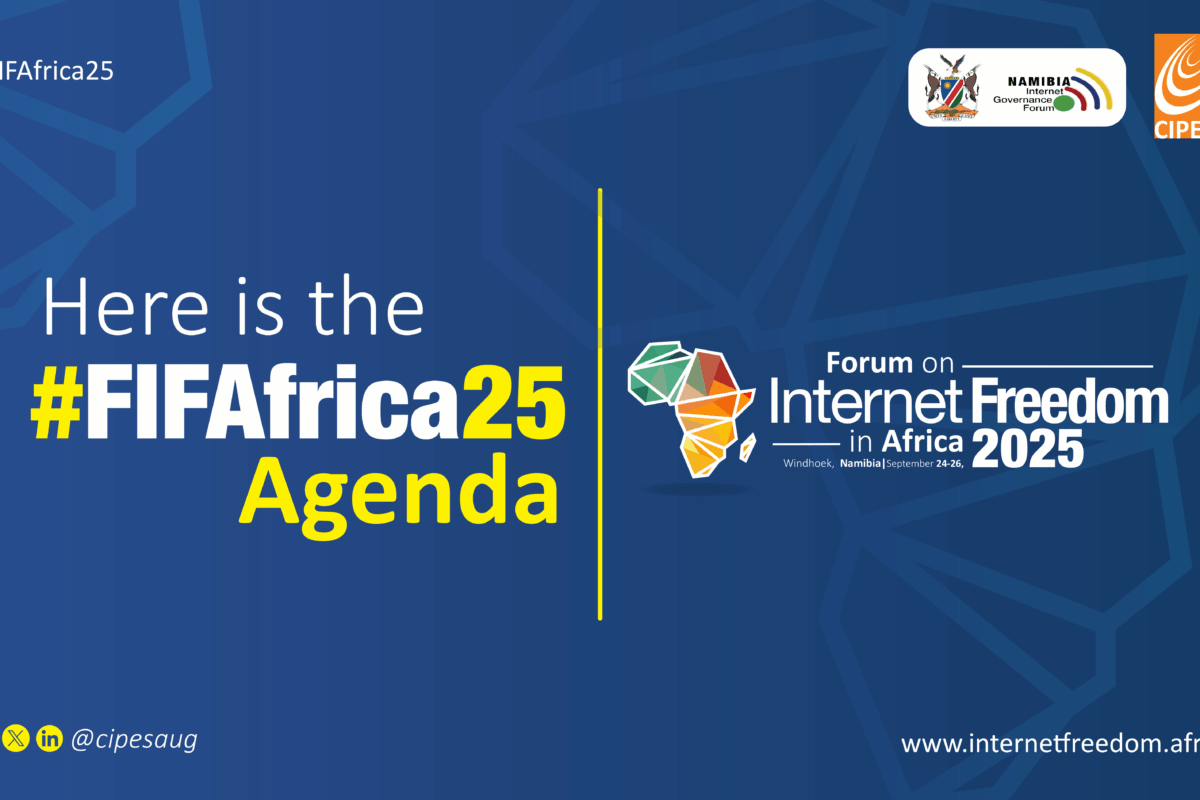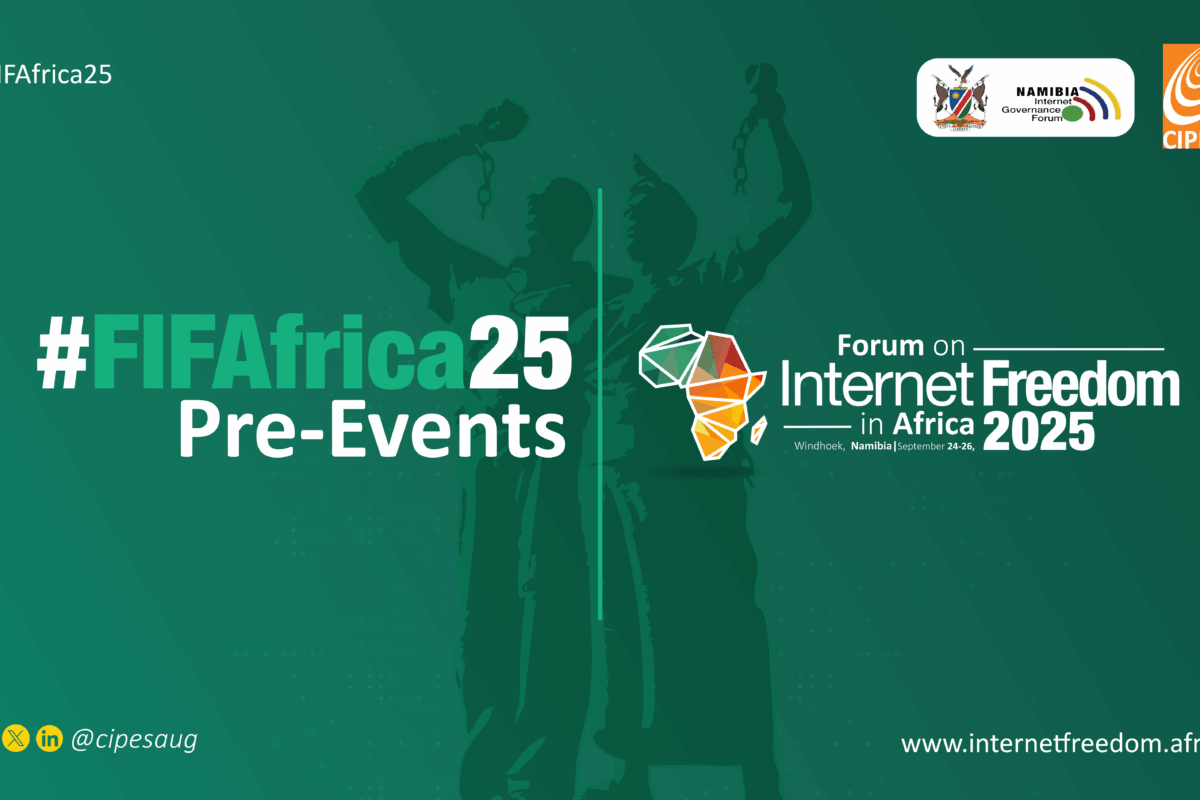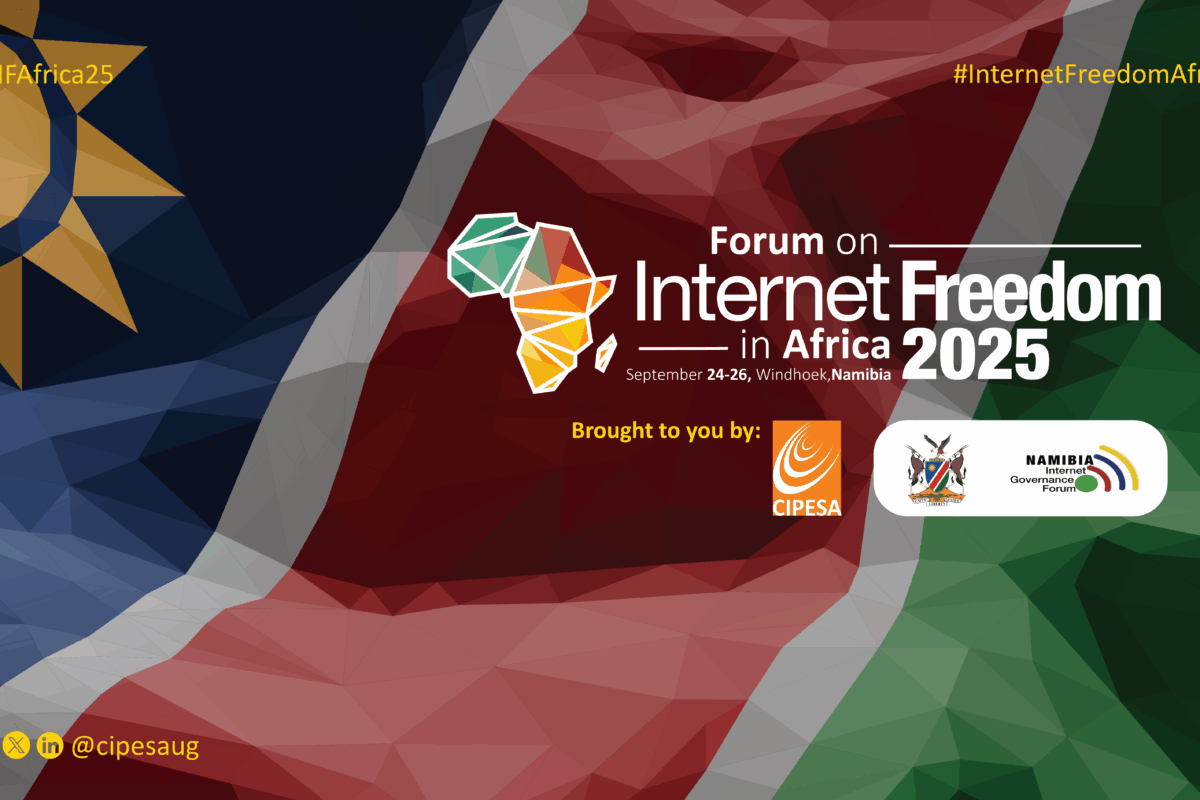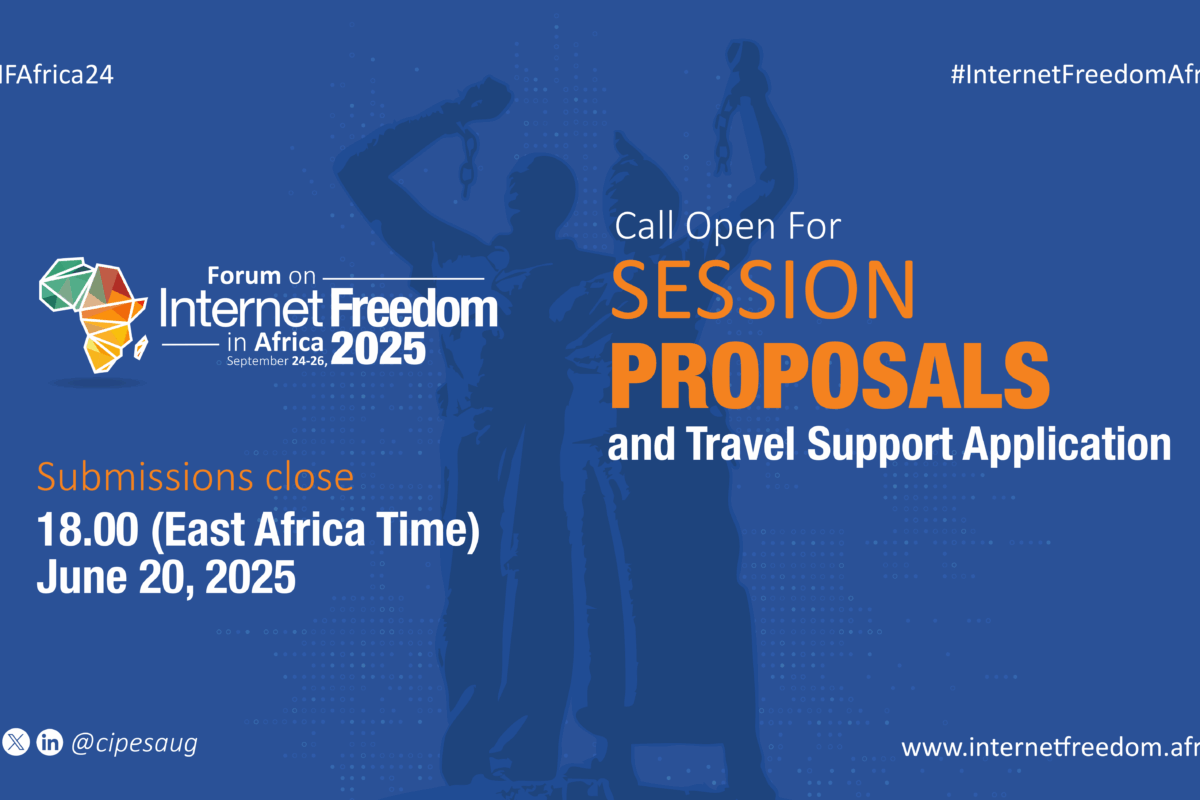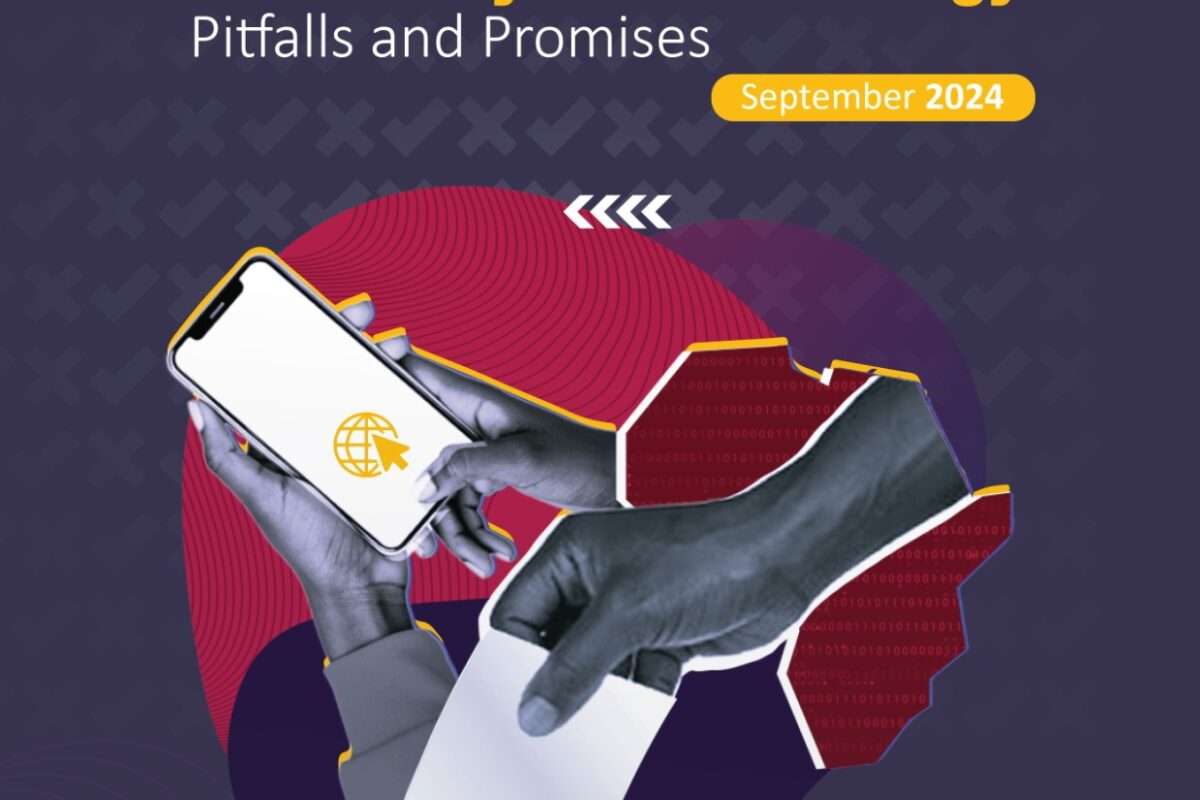By FIFAfrica |
The Forum on Internet Freedom in Africa (FIFAfrica25) is fast approaching, and the excitement is building. This year’s edition, hosted by the Collaboration on International ICT Policy in East and Southern Africa (CIPESA) in partnership with the Namibian Ministry of Information and Communication Technology (MICT) and the Namibia Internet Governance Forum (NamIGF), will take place in Windhoek, Namibia, from 22–26 September 2025. We are pleased to announce that the speaker line-up and full agenda is now available, offering a comprehensive line-up of conversations, experiences, and networking opportunities.
This year’s Forum will serve as yet another edition in FIFAfrica’s 12-year history of assembling digital rights defenders, policymakers, technologists, academics, regulators, journalists, and the donor community, who all have the shared vision of advancing internet freedom in Africa. FIFAfrica25 promises to build on this legacy, with an agenda that is engaging and inclusive of the many shifts we have witnessed since last year.
Here is What You Can Expect
Pre-Events by invitation (September 22-24, 2025)
FIFAfrica25 kicks off with a series of pre-events designed to engage allies, stock-take and build skills and knowledge ahead of the main programme. These include community-driven workshops, closed-door strategic dialogues, and network member meetings that allow participants to dive deeper into niche areas of digital rights and governance. Over the years, pre-events have served as an exciting avenue for various organisations to connect early, showcase their work, sharpen ideas, and prepare new communities for the various sessions at the main event.
The pre-events are by invitation only. However, limited spots are available for additional participants in select events. Are you arriving in Windhoek early and interested? Express interest in attending a pre-event here.
A Diverse Main Programme (September 25-26, 2025)
The main agenda features plenary sessions, workshops, consultations, breakout discussions, and networking moments. Sessions cover a wide array of topics reflecting themes that emerged from our public call for proposals, including digital inclusion, digital resilience and safety; freedom of expression & access to information; platform accountability; the implications of AI; digital economy; and digital democracy.
Strategic Consultations
As part of the Forum, various strategic meetings have been set up with the goal of deeper-level discussion and interrogation of specific issues and processes. These include efforts aimed at influencing action on areas such as various resolutions of the African Commission on Human and People’s Rights (ACHPR) and Digital Public Infrastructure. Additionally, this year a book launch on internet shutdowns features amongst the strategic engagements. These engagements will allow for frank exchanges on some of the challenges in the digital ecosystem, but will likely also cast a light on more opportunities for collaboration across Africa and beyond.
Immersive Experience
This year, we want participants at FIFAfrica to “Be the experience!” Accordingly, the Forum will encourage attendees, onsite or participating remotely to partake in various interactions that bring digital rights issues to life. These experiences aim to break down barriers between complex digital rights policy concepts and real-world lived experiences.
These include:
- An interactive FIFAfrica25 exhibition showcasing research, campaigns, and various digital resilience tools.
- Storytelling spaces where the #InternetFreedomAfrica community can share personal accounts of resilience and advocacy in digital spaces.
- An art and activism installation reflecting FIFAfrica’s tradition of merging creativity with digital justice.
- For the third time, the Digital Security on Wheels is back on a one-of-a-kind journey which will see biker Digital Security expert Andrew Gole set off from Kampala, Uganda, weaving through Kenya, Tanzania, Malawi, Mozambique, Zimbabwe, and Botswana before crossing the finish line in Windhoek, Namibia just in time for the opening of FIFAfrica25. His route back to Uganda will also include Zambia and Rwanda.
- The Run for Internet Freedom in Africa aims to bring together participants to jog, or walk in solidarity with the call for a free, fair and open internet. More details to follow.
Celebrating the International Day for Universal Access to Information
FIFAfrica25 will continue the practice of commemorating the International Day for Universal Access to Information (IDUAI) celebrated annually on September 28. While the Forum this year precedes the IDUAI, many sessions and plenary discussions will highlight the essential role of access to information in enabling civic participation, inclusion, and digital democracy. This year’s global theme, “Ensuring Access to Environmental Information in the Digital Age”, focuses on the vital importance of timely, comprehensive, and cross-border access to environmental information in an increasingly digital world and resonates deeply with many of the Forum’s discussions.
Join Us in Windhoek
We invite you to explore the full agenda on the FIFAfrica website and begin planning your journey through the sessions, meetings, and immersive experiences (remember to register on the event platform and join the community there). Whether you are a policymaker, activist, journalist, academic, technologist, or artist, FIFAfrica25 will have a space for you to contribute.

